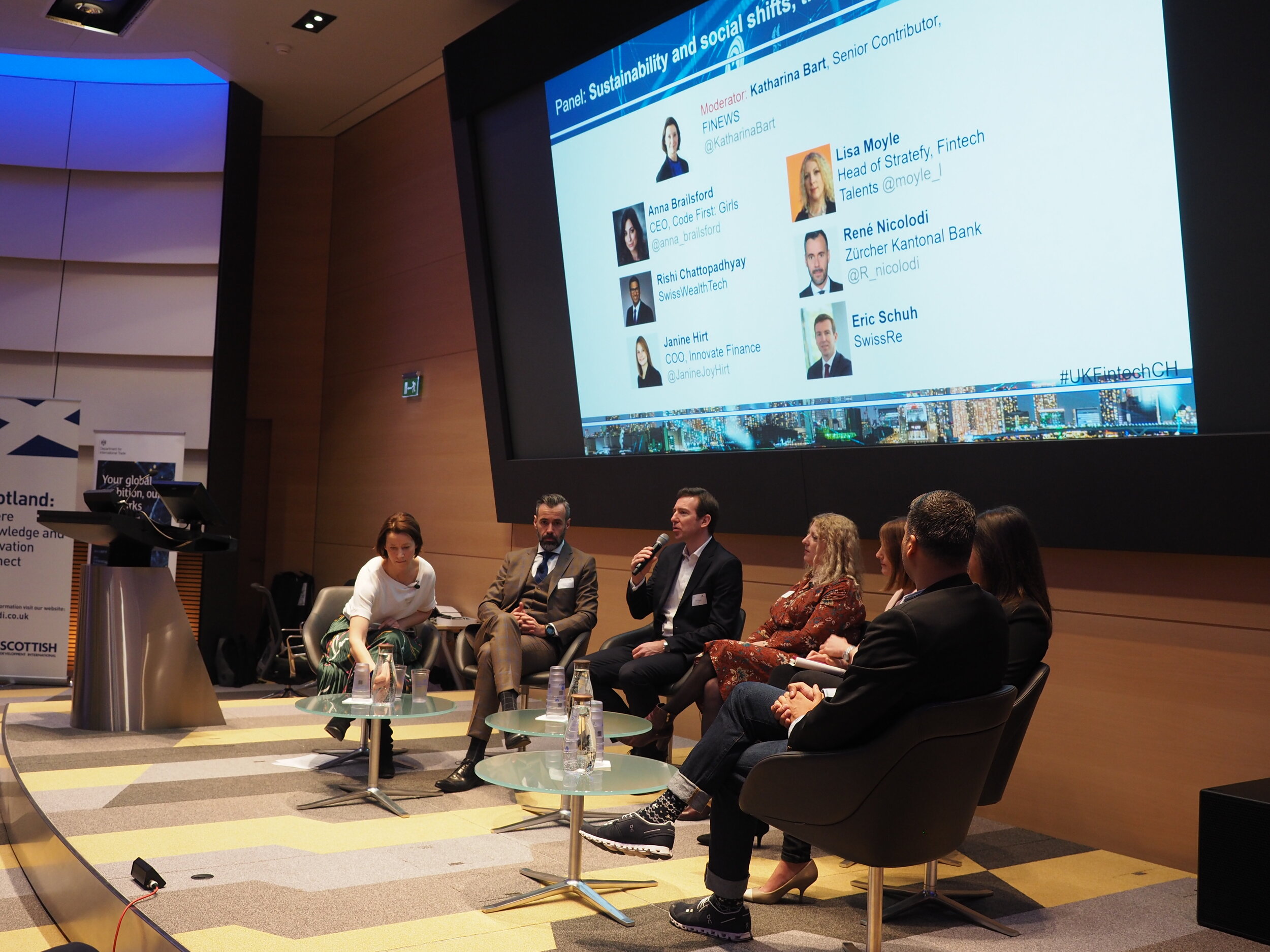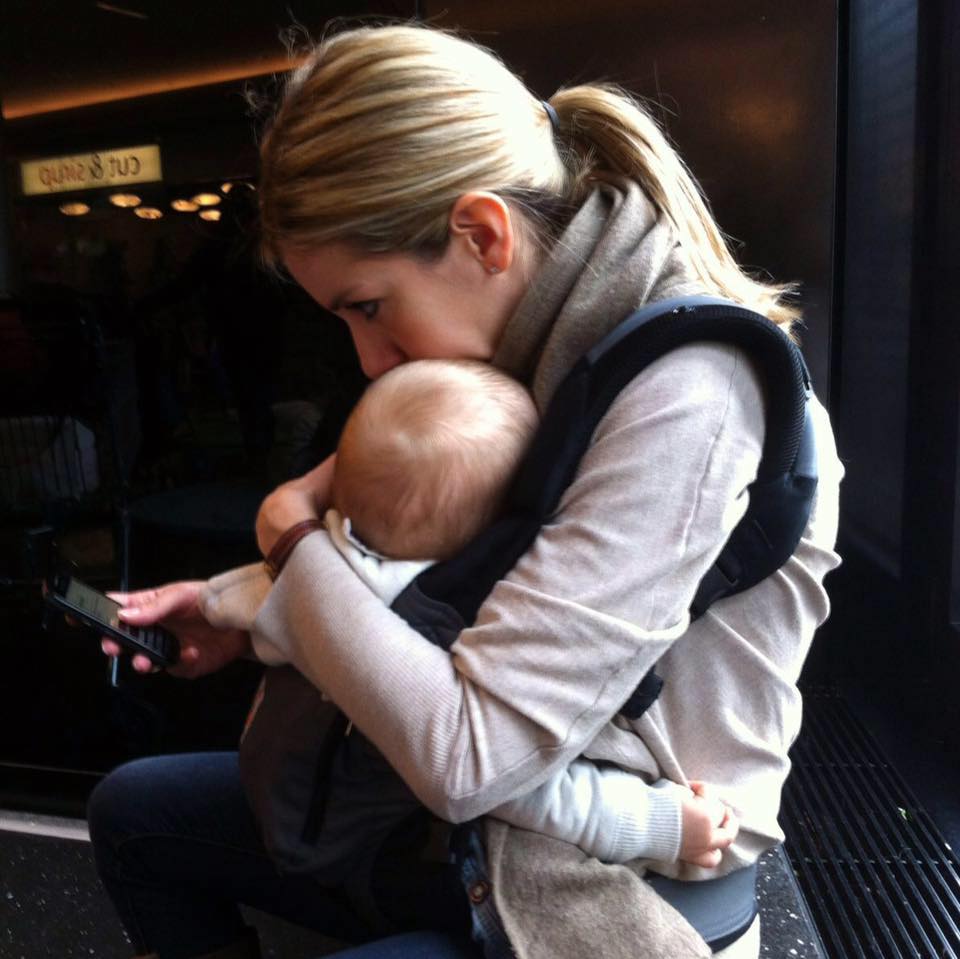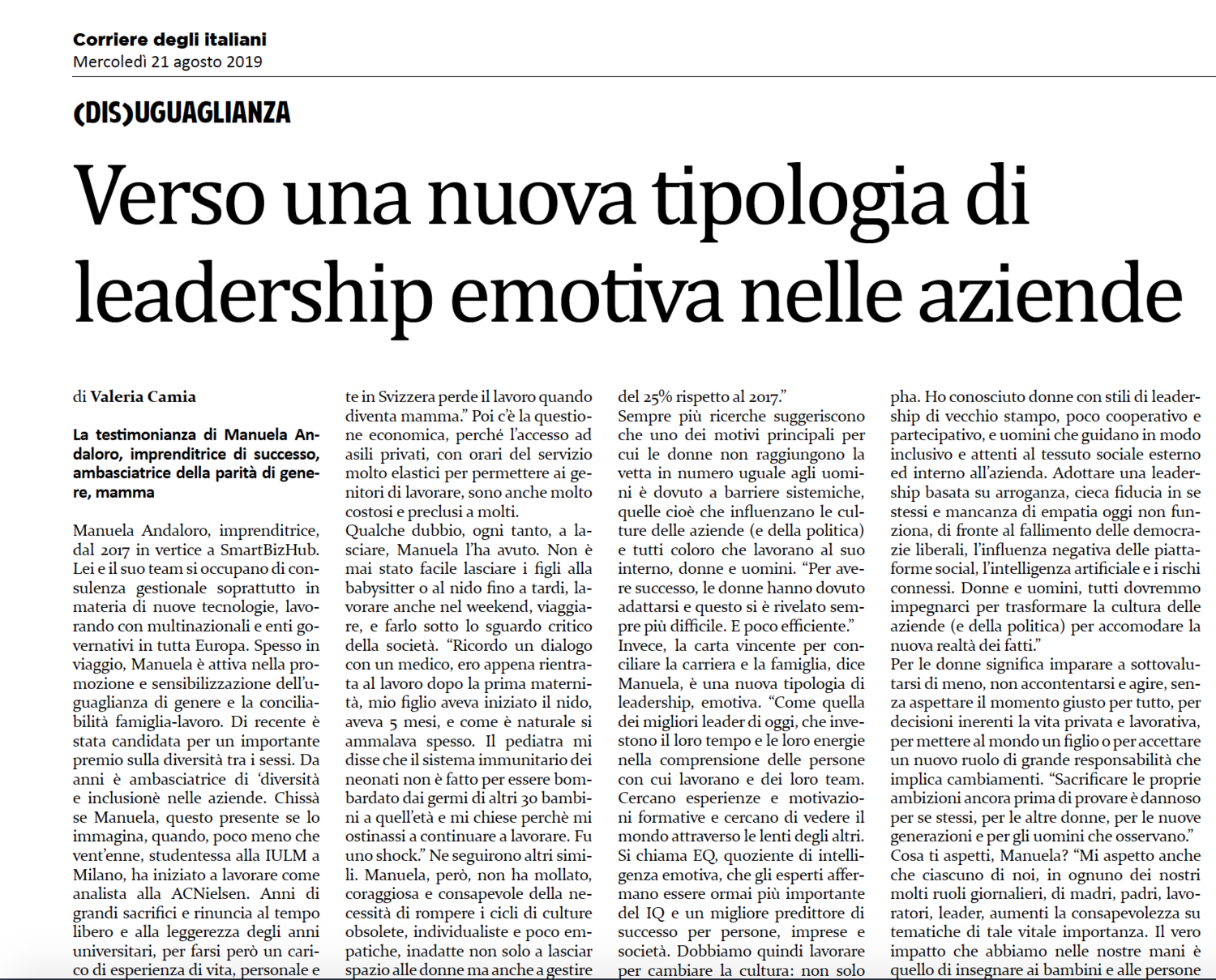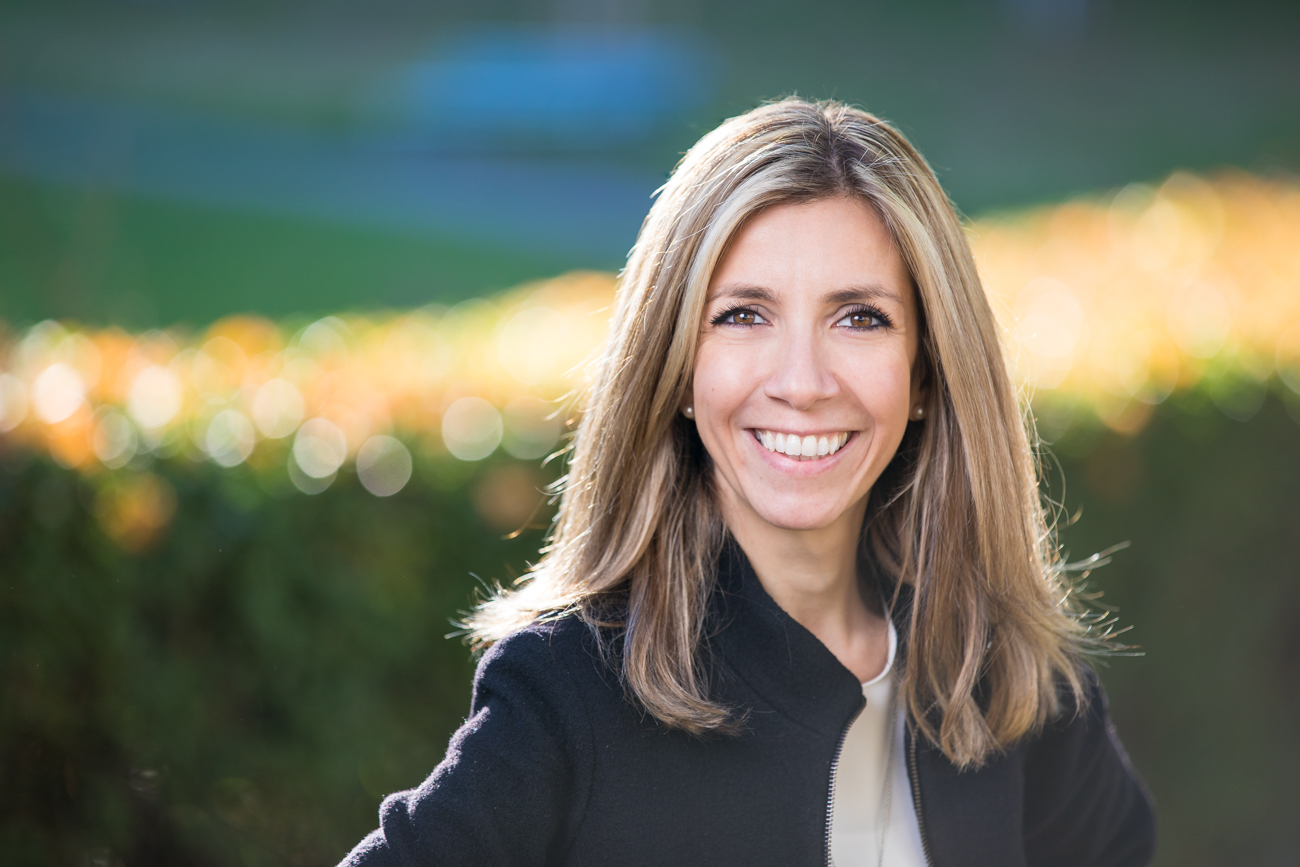Built for growth, the global economic machine has been brought to a screeching halt. Thanks to intervention on an unprecedented scale, a full-scale meltdown has been averted – for now.
On January 30th, 2020, 43 representatives from 32 UK FinTechs, 25 Swiss banks and financial institutions, 7 VCs, 19 Swiss FinTech players, and many others gathered in Zurich: over 180 experts met to talk innovation, sustainability, and investments.
We didn’t know then that our world was about to change for a while to come – perhaps forever – and that soon we’d have put our discussions about innovation and sustainability to practice.
5th UK FinTech Mission to Switzerland event, 30.1.20, British Embassy Bern, DIT, Zurich Insurance
Key discussions of the day focused on social shifts driven by the longevity economy, age diversity, and ethics reshaping the financial world. Our aging society has been affecting consumer trends, opening new opportunities for businesses and workforce, while increasingly, 40-year-old millennials have been leading the charge of socially-responsible and sustainable investing, both ultimately driving the greater good.
COVID-19 has changed the ball game in today’s global economy, society, and impact investment strategies, calling into serious question our ability to reach the Sustainable Development Goals (SDGs) by 2030 – if that was ever possible.
With the current crisis in full development, many hope that a “mindset shift” will occur once a “new normal” is achieved. Both optimists and pessimists seem to agree that western balance sheets will at best go back to 2008 levels. In terms of debt-to-GDP, we’re talking of 10 percent or more, plus unemployment at 15-20 percent coupled with the strong possibility of populist-enforced cuts in foreign aid and the very likely scenario of social unrest across the first world.
The financial meltdown (currently deemed to be worse than that of 1987 or indeed, as some say, similar to the Great Depression of the 1930s) will also very likely reduce traditional foundation funding.
It is interesting, and very difficult, to think now of the topics we discussed on stage only a few months back, and to do so, wearing a Covid-19 lens. Most of the challenges we discussed – whether concerning the aging population among consumers and investors as well as in the workplace, or the attitude of millennials towards social good – have only worsened. Possibly, two key aspects will emerge and might be the staple to overcome the ever-greater challenges ahead: digitization and sustainability, sparking new discussions around a new way to work and to engage in less-social contexts, and around the increasing need for impact and sustainable investing.
“As the Chair of the International Accounting Standards Board recently noted, the current approach ‘will not prioritize planet over profit.’ What is important for both sides of the for-profit and not-for-profit divide is not what people are saying – but what they are already doing to be socially impactful. What are we paying for? And what is the incremental impact of each government or corporate dollar to each SDG? In other words, we need a metrics process whereby everyone is seriously involved and stakeholder actions are competitive, comparative and, predictive.
If not, we will continue to witness a decline in both the effective statistics measuring the SDGs as well as the effectiveness of programs designed to serve them, with an expansion of the funding gap. The danger is that, by 2030, the international community will have spent $6 trillion with little to show, particularly to teenage Swedish activist Greta Thunberg’s generation.”
Governments are pumping out capital to try to save economies and bridge financing gaps around the world, but it is apparent that government funding alone is likely to be insufficient to solve this immediate crisis. Nor can it be relied on as the only solution for the longer-term investments required to build stable, resilient systems that can manage a planet headed toward a population of 10 billion people within the next few decades.
We know that climate change will disproportionately affect those at the base of the economic pyramid; as we are experiencing with coronavirus-related deaths and job losses, the same is true for this pandemic. The crisis has highlighted the case for purpose-driven, inclusive finance across both the environmental and social sectors, which is at the core of impact investing.
An encouraging takeaway from the crisis is that the push for private capital to act more decisively as a force for good in society and to shoulder a portion of the investment burden does not have to come necessarily with attractive returns.
Visionary leadership needed.
As the COVID-19 pandemic continues to create uncertainty, many FinTechs are under stress on a number of fronts. Access to funding – especially for some early-stage ventures, as many investors focused on established FinTechs with clear business models –, recent interest rate cuts and the economic slowdown have radically changed many industry assumptions.
Yet, as the broader economy shifts from response to recovery, COVID-19 may create new opportunities for some FinTechs. For example, as social distancing has taken hold worldwide, there has been very strong growth in the use of digital financial services and e-commerce, as well as an increased interest in doing the “social good”.
Keeping an eye on future opportunities, FinTech companies may be forced to reexamine their missions and business models after COVID-19. A key question is how to leverage both existing and newly-developed assets to seize new opportunities in the future. It could be an opportune time to think big and act boldly. First and foremost, it is apparent that social distancing is accelerating customers’ use of online – especially, mobile – channels to view and manage their finances. Because many FinTechs are purpose-built for the mobile channel, they often excel in offering presentation, on-boarding, underwriting, and data visualization services, as well as in providing the right context for transactions. These capabilities will likely become even more relevant and important as a greater number of financial transactions are conducted through digital channels.
FinTechs can play an important role, perhaps through strategic partnerships across a broad ecosystem of players – including financial institutions, retailers, and the government sector – in distributing benefits to more vulnerable sectors of the population. Indeed, many FinTechs made it their mission to democratize financial services by providing basic financial services in a fair and transparent way.
COVID-19 and the Longevity Economy
Despite the outbreak, the global population continues to age, and we expect global life expectancies to creep higher over the long term. Although we may see some changes in consumption patterns post-COVID-19, the key drivers of the longevity economy will likely remain intact.
The “Longevity Economy” is redrawing economic lines (AARP research), changing the face of the workforce, advancing technology and innovation, and busting perceptions of what it means to age. Bank of America Merrill Lynch projected in 2019 that the global spending power of those aged 60-plus would reach $15 trillion annually by the end of 2020.
Increasing longevity had, until February 2020, spurred unprecedented economic growth and new opportunities for personal fulfilment. Markets have been evolving to meet their needs and aspirations, offering new opportunities.
Aging adults are not only consumers – they are our only increasing natural resource, a talent pool that can power businesses and enhance the communities of the future.
Over the next few decades, baby boomers and Gen X will pass a significant amount of wealth (calculated at $30T prior to the COVID crisis) on the millennial generation. With very high spending power, millennials have started to reshape the investing and FinTech spaces to better align with their ethical values.
FinTechs for social good
“Life is what happens when you are busy making other plans.” As we struggle to bring into focus the long-term impacts of a post-COVID-19 world, Lennon’s quote is a poignant reminder of the uncertainties that lie ahead for sustainable and responsible investors.
We are now approaching an inflection point in the crisis, where savvy investors are fundamentally reassessing economic, environmental, social and, governance factors to adjust to the new normal.
The time has passed for small commitments, hyperboles, and delays in embracing sustainable investing. Now is the time for leadership, investment, and action. Companies and investment managers that remain on the sidelines will sacrifice their opportunity to shape their own, and the planet’s, future.
Within 36 months, there will no longer be a discernable distinction between sustainable and traditional investing, predicts the Responsible Investor.
We can only take note and act fast.
Manuela Andaloro
(info@smartbizhub.com)
Sources: Global Geneva, the Guardian, Deloitte, Gig Economy Data, Responsible Investor.
Republished also on Corriere dell’Italianita’













